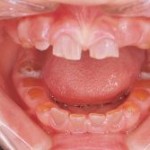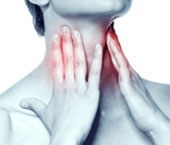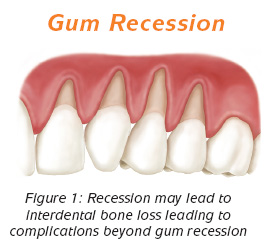People all across the world utilize a toothbrush sanitizer to rid their toothbrushes off the plethora of germs and bacteria that thrive on them. These germs are believed to be one of the leading causes of various ailments such as Candida, cold and flu, Listeria, Salmonella, E. Coli, Meningitis, Herpes, and HIV etc. Continue reading
Category Archives: Oral Care
Tongue cleaner
A tongue cleaner (also called a tongue scraper or tongue brush) is an oral hygiene device designed to clean the bacterial build-up, food debris, fungi, and dead cells from the surface of the tongue. The bacteria and fungi that grow on the tongue are related to many common oral care and general health problems. In addition, decaying bacteria produce volatile sulphur compounds on the rear of the tongue; these molecules account for 80 to 95 percent of all cases of halitosis (bad breath). Continue reading
Dentinogenesis imperfecta
Dentinogenesis imperfecta is an inherited disorder of the dentine affecting the primary and permanent dentitions. It can be associated with a medical condition which is known as Osteogenesis imperfecta. Continue reading
Oral habits
Common behaviors seen in children and adults with jaw deficits and subsequent speech and feeding disorders are that of maladaptive oral habits. Such habits include jaw clenching and teeth grinding (bruxism), excessive mouthing of objects, thumb and finger sucking, tongue sucking, lip chewing, nail biting, and extended bottle and pacifier use. These habits, when excessive or are continued past appropriate developmental necessity, can lead to poor dental health, be socially stigmatizing, and inhibit the development of speech clarity. Continue reading
Oral pathology in newborn infants
1)Â Â Â Â Â Epstein pearls:
They are whitish yellow nodules found in the midline of your infant’s palate (the roof of your mouth). The nodules are around 1 to 3mm in size. Do not worry as they are just a result of epithelial tissues trapped during the fusion of the palate. There is no treatment needed if your baby has Epstein pearls as they will disappear within 1 to 2 weeks of birth. Continue reading
Lumps in the Neck
A wide range of disease may present with lesions in the neck, but the most common complaint is of the swelling and/or pain in the lymph nodes. Over a quarter of the lymph nodes in the body are connected with cervical lymph nodes (glands in the neck) situated in the head and neck. It is not surprising then, that many diseases of the lymphoid tissue present primarily in this region. Continue reading
Dental management of leukemia patients
Â
Leukemia is a type of blood cancer whereby there is an abnormal increase of immature/ primitive white blood cells. White blood cells function by producing antibodies to fight off infection from our body. Leukemia patients are more prone to infections as their abnormal white blood cells cannot produce antibodies. Continue reading
Dry Mouth Mouthwash
Dry mouth, also called xerostomia, is a condition that can interfere with everyday activities, such as eating, talking or sleeping. Some common symptoms of dry mouth include:
- Bad breath
- A sticky, dry or sore mouth
- Cracking at the corners of the mouth
- A red and parched mouth
- Blisters and mouth ulcers
- A pebbled look to the tongue
- Difficulty eating dry or spicy foods
- Waking up with a dry mouth at night Continue reading
Cleft lip and palate (Part 2)
 The main aims of treating patients with cleft lip and palate:
The main aims of treating patients with cleft lip and palate:
-Â Â Â Â Â Â Â Â Â To allow patient to achieve normal appearance and to attain normal function of the upper lips
-Â Â Â Â Â Â Â Â Â To provide the least possible damage to the future growth and development Continue reading
Treatment of a Receding Gum Line
The previous article discussed about the causes of a receding gum line therefore this article will proceed with the treatment options for gum recession. Continue reading




